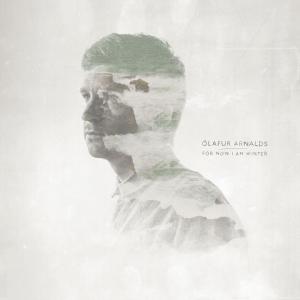The third album of Icelandic musician and producer Olafur Arnalds, For Now I am Winter, is intricately woven from repeating piano rhythms, delicate strings and loops to create a haunting and unsettling effect. From the opening track ‘Sudden Throw’ it is clear that this music, though purely instrumental, is not to be played in the background, rather to be experienced as a whole, demanding the emotional and intellectual concentration of the listener.
The fast repeated rhythms of staccato violin are made all the more unsettling by a series of loops adding a base beat to the second track ‘Brim’. This is the type of music that one would expect to find soundtracking a police drama or thriller to intensify its emotive and dramatic effect. There are quieter moments in the song, which, though still haunted by strings, heighten the effects when the beat is brought back and the rhythm accelerated, like a pumping heart beat pulsing erratically through you ears during a car chase.
‘We (Too) Shall Rest’ acts as a peaceful and solemn interlude in the album, and the sound is reminiscent of Balmorhea, crying strings accentuating perfectly the melancholy mood of the title. The moments of light in the song help to represent that different emotions that might conflict at this time of rest. This period of rest is soon replaced again with the great tension in ‘This Place Was A Shelter’, where a more electronic beat is introduced and the pulsing heartbeat returns, all the time complimented by moaning strings. Arnalds uses percussion and electronic sounds to create an interesting interwoven landscape of splashes and crashes, which heighten further the unsettling mood of the track.
Arnalds has created an album that demands attention. It produces an interesting paradox in that it is wonderfully crafted and aesthetically pleasing to the ear, while getting you heart racing with tension and producing a wholly unnerving sensation in the pit of your stomach. If the title of the album reflects the way the musician was feeling when he produced the piece, he successfully passes on this sentiment to the listener who is left feeling wintery, cold and unnerved, though sure of Arnald’s musical creativity and prowess.
Words: Amelia Steele

